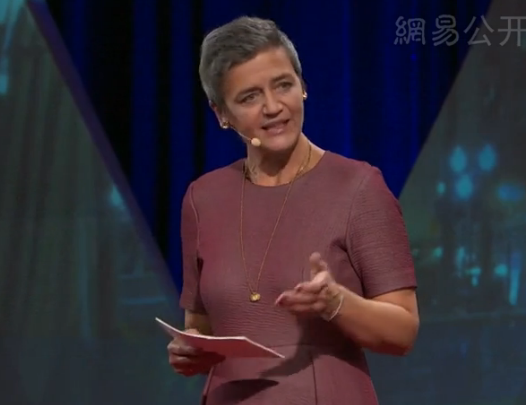Let's go back to 1957.
讓我們回到1957年。
Representatives from six European countries had come to Rome to sign the treaty that was to create the European Union.
六個歐洲國家的代表來到羅馬,簽署成立歐盟的條約。
Europe was destroyed. A world war had emerged from Europe.
世界大戰起于歐洲,使歐洲慘不忍睹。
The human suffering was unbelievable and unprecedented.
人民承受著難以想象和前所未有的苦難。
Those men wanted to create a peaceful, democratic Europe, a Europe that works for its people.
那些代表想建立一個和平、民主的歐洲,一個為歐洲人運作的歐洲。
And one of the many building blocks in that peace project was a common European market.
該和平項目中的一個組成部分就是建立歐洲共同市場。
Already back then, they saw how markets, when left to themselves,
早在那時他們就已知道,如果不監管市場,
can sort of slip into being just the private property of big businesses and cartels,
市場就會淪為大企業和聯合集團的私有財產,
meeting the needs of some businesses and not the needs of customers.
只滿足一些企業的需求,而非消費者的需求。

So from our very first day, in 1957, the European Union had rules to defend fair competition.
所以,在1957年,從歐盟建立的第一天起,歐盟就制定規定來維持公平競爭。
And that means competition on the merits,
也就是按水平競爭,
that you compete on the quality of your products, the prices you can offer, the services, the innovation that you produce.
根據產品品質、價格、服務和創新性來競爭。
That's competition on the merits. You have a fair chance of making it on such a market.
這就是根據水平競爭。在這樣的市場,你有公平的機會嶄露頭角。
And it's my job, as Commissioner for Competition, to make sure that companies who do business in Europe live by those rules.
身為市場競爭事務專員,我的工作就是確保在歐洲做生意的企業遵守這些規范。











